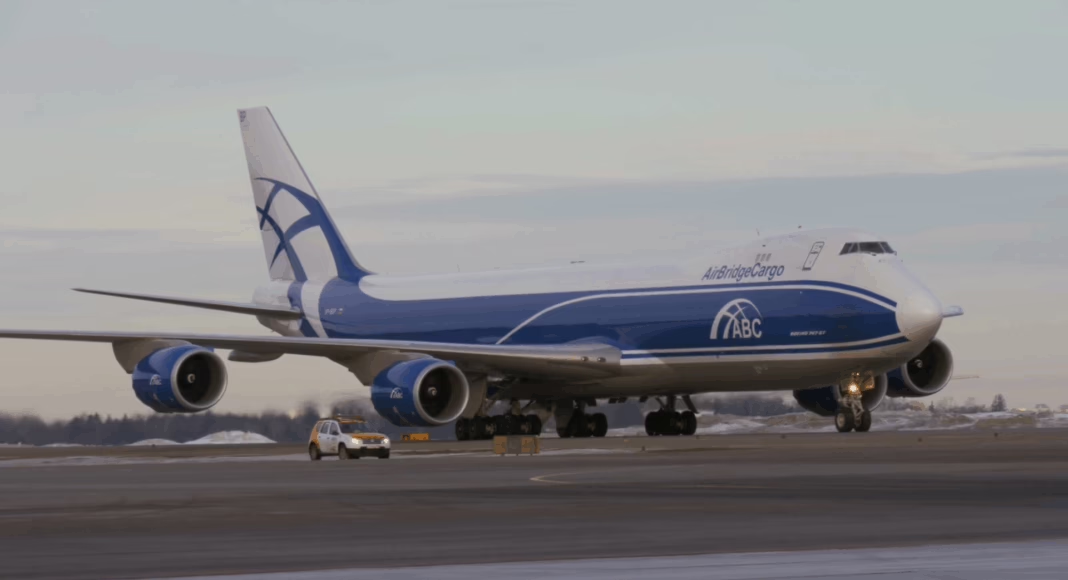Russian carrier set to strip cargo planes from grounded subsidiaries to keep passenger fleet flying
Russia’s flag carrier Aeroflot is preparing to dismantle eight Boeing cargo aircraft for spare parts to sustain its passenger operations, according to reports from aviation industry sources.
The plan involves six Boeing 737-800BCF freighters and two Boeing 747-400s that will be transferred from Volga-Dnepr Airlines subsidiaries under a contract valued at approximately 10 billion rubles ($130 million), as reported by AeroTime.
The aircraft will move to Pobeda, Aeroflot’s ultra-low-cost carrier based at Moscow’s Vnukovo International Airport, and Rossiya Airlines, which operates from Pulkovo Airport in St. Petersburg. The six 737s currently belong to ATRAN, while the two 747s came from AirBridge Cargo. Both carriers are subsidiaries of cargo specialist Volga-Dnepr Airlines.
Russia’s National Welfare Fund, built from oil and gas revenues, will finance the leasing agreements for the transfers. However, economists have warned that current economic trends could drain this fund by 2026, according to The Moscow Times.
The dismantling marks the first time Russian passenger carriers have needed to cannibalize dedicated cargo aircraft specifically for parts, highlighting mounting pressure on the country’s aviation sector. Western sanctions imposed after the Russia-Ukraine conflict cut off access to new aircraft, certified maintenance support and spare parts catalogs from Boeing and Airbus.
Before the war, between 1,500 and 1,800 Western-manufactured aircraft operated in Russia. Since sanctions took effect, Russian carriers have been banned from airspace in many countries and have re-registered aircraft domestically. The European Union added all Russian airlines to its safety ban list, while the U.S. Department of Commerce prohibited American companies from servicing Boeing aircraft flown by Russian operators.
Without access to manufacturer-supplied components, Russian airlines have turned to aircraft cannibalization — removing serviceable parts from retired or older planes to keep others flying. This approach provides short-term solutions but accelerates fleet depletion, creates logistical challenges and increases long-term costs. Whether donor aircraft can return to service after sanctions lift remains uncertain.
European Commission sanctions ban exports, sales or transfers of any aircraft, parts or equipment to Russia and restrict third-party countries from such activities.
ATRAN retired its 737-400F and 737-800BCF aircraft in 2022 when sanctions began, though the carrier continues operations with Antonov An-12BP aircraft. The airline has reportedly distanced itself from Volga-Dnepr and now flies cargo charters across Russia and Commonwealth of Independent States nations, including Armenia, Azerbaijan, Belarus, Kazakhstan, Kyrgyzstan, Moldova, Tajikistan, and Uzbekistan.
AirBridge Cargo, which operated from Moscow Sheremetyevo International Airport and Krasnoyarsk airports, suspended operations in 2022 due to sanctions that rendered its fleet unusable. The carrier returned most aircraft to lessors. During operations, it flew Boeing 737-400SF, 747-200F, 747-300SF, 747-400F, 747-8F and 777F aircraft across Europe, Asia and North America.
Volga-Dnepr Airlines operated as one of the world’s major cargo carriers for more than 35 years, providing worldwide cargo delivery, maintenance, repair and overhaul services, trucking and training. According to ch-aviation data, the company’s fleet now consists of Antonov An-124 and Ilyushin Il-76TD-90VD aircraft.

Key Takeaways
- Aeroflot will dismantle eight Boeing cargo aircraft — six 737-800BCFs and two 747-400s — for spare parts under a $130 million contract, marking the first time Russian passenger carriers have cannibalized dedicated cargo planes.
- Western sanctions have blocked Russian airlines from accessing new aircraft, certified maintenance and manufacturer-supplied parts from Boeing and Airbus since the Russia-Ukraine conflict began.
- The aircraft will transfer from grounded Volga-Dnepr subsidiaries ATRAN and AirBridge Cargo, which ceased operations or retired their Boeing fleets in 2022.
- Russia’s National Welfare Fund will finance the transfers, though economists warn the fund could be depleted by 2026 under current economic conditions.



